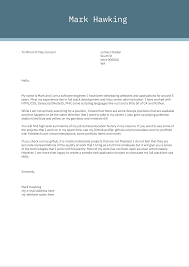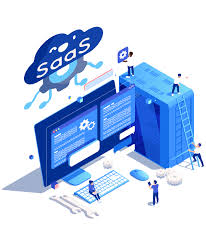Empowering Your Online Presence: The Evolution of Website Making Software
The Evolution of Website Making Software
Creating a website used to be a complex and time-consuming task that required advanced coding skills. However, with the advent of website making software, the process has been revolutionized, making it accessible to individuals and businesses of all levels of technical expertise.
Features of Modern Website Making Software
Modern website making software comes with a range of features that simplify the website creation process:
- Drag-and-Drop Interface: Many website builders offer intuitive drag-and-drop interfaces, allowing users to design their websites visually without any coding knowledge.
- Templates and Themes: Users can choose from a variety of pre-designed templates and themes to customize the look and feel of their websites.
- Responsive Design: Website making software ensures that websites are optimized for viewing on various devices, including desktops, tablets, and smartphones.
- E-Commerce Functionality: Some platforms include built-in e-commerce tools for users to create online stores and sell products or services.
- SEO Optimization: Users can optimize their websites for search engines using built-in SEO tools that help improve visibility online.
The Benefits of Using Website Making Software
There are several advantages to using website making software for creating a website:
- User-Friendly: Website builders are designed for ease of use, allowing individuals without technical skills to create professional-looking websites.
- Cost-Effective: Building a website with software is often more affordable than hiring a web developer or agency for custom development.
- Rapid Development: With ready-made templates and drag-and-drop functionality, users can create websites quickly and efficiently.
- No Maintenance Required: Website making software typically includes hosting and maintenance services, relieving users of the need to manage technical aspects themselves.
In Conclusion
The availability of modern website making software has democratized the process of creating websites, empowering individuals and businesses to establish their online presence with ease. Whether you’re a small business owner, an entrepreneur, or an aspiring blogger, website building tools offer an accessible solution for bringing your ideas to life on the web.
7 Essential Tips for Choosing the Right Website Building Software
- Choose a website making software that fits your skill level and needs.
- Consider the scalability of the software as your website grows.
- Look for responsive design features to ensure your site looks good on all devices.
- Check for SEO tools to help optimize your website for search engines.
- Ensure the software offers good customer support in case you run into any issues.
- Review pricing plans to find one that fits your budget and offers necessary features.
- Take advantage of free trials or demos before committing to a website making software.
Choose a website making software that fits your skill level and needs.
When selecting a website making software, it is essential to choose one that aligns with your skill level and specific requirements. Opting for a platform that matches your expertise ensures a smoother website creation process, allowing you to leverage the software’s features effectively. By considering your needs and capabilities, you can maximize the potential of the website making software and create a professional and tailored online presence that meets your objectives.
Consider the scalability of the software as your website grows.
When selecting website making software, it is crucial to consider the scalability of the platform as your website expands and evolves. Ensuring that the software can accommodate the growth of your website in terms of traffic, content, and functionality is essential for long-term success. Scalability allows you to seamlessly integrate new features, handle increased traffic loads, and maintain optimal performance as your online presence grows. By choosing a scalable website making software, you can future-proof your website and avoid potential limitations down the line.
Look for responsive design features to ensure your site looks good on all devices.
When selecting website making software, it is crucial to prioritize platforms that offer responsive design features. Ensuring that your website looks visually appealing and functions seamlessly across various devices, including desktops, tablets, and smartphones, is essential for providing a positive user experience. Responsive design not only enhances the accessibility of your site but also contributes to its overall professionalism and credibility in the competitive online landscape. By incorporating responsive design features into your website creation process, you can reach a broader audience and maximize engagement across different devices.
Check for SEO tools to help optimize your website for search engines.
When selecting website making software, it is essential to check for built-in SEO tools that can assist in optimizing your website for search engines. These tools can help improve the visibility of your site online by guiding you in implementing key SEO strategies such as meta tags, keyword optimization, and site structure. By leveraging SEO tools within the website builder, you can enhance your website’s search engine rankings and attract more organic traffic to your site.
Ensure the software offers good customer support in case you run into any issues.
When selecting website making software, it is crucial to ensure that the platform provides reliable customer support to assist you in case you encounter any challenges or issues during the website creation process. Good customer support can make a significant difference in resolving technical difficulties promptly and ensuring a smooth experience while building your website. Prioritizing software with excellent customer service can help you navigate any obstacles effectively and ultimately achieve your desired online presence without unnecessary setbacks.
Review pricing plans to find one that fits your budget and offers necessary features.
When exploring website making software options, it is essential to review pricing plans carefully to identify one that aligns with your budget while providing the necessary features for your website project. By comparing different pricing tiers and evaluating the features included in each plan, you can make an informed decision that ensures you get the most value for your investment. Prioritizing a balance between affordability and functionality will help you select a website building tool that meets your needs effectively.
Take advantage of free trials or demos before committing to a website making software.
Before committing to a website making software, it is advisable to take advantage of free trials or demos that many platforms offer. By exploring these trial versions, users can get a hands-on experience of the software’s features, usability, and suitability for their specific needs. This allows individuals and businesses to make an informed decision and ensure that the chosen website making software aligns with their requirements before making a financial commitment.






